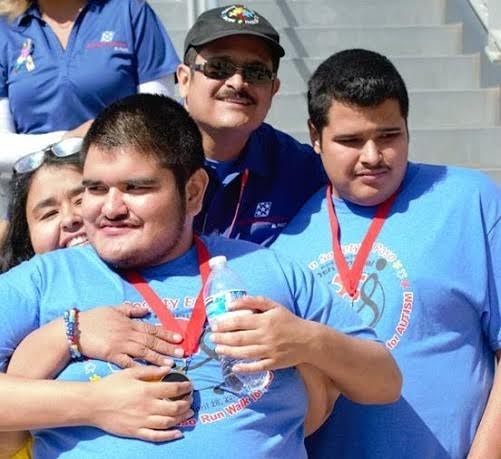Autism diagnosis: What I wish I knew
If I Need Help asked our friends who have adult children with special needs to share “3 things I wish I knew when my child was first diagnosed that I know now” Todays contribution is from Armando Sandoval of The Autism Society of Texas-El Paso. If I Need Help makes wearable iD and offers a free Caregiver controlled special needs registry for our loved ones who may wander or need assistance in a critical moment.
It’s been 23 & 24 years since my sons’ Autism diagnosis, my first thought is, “only 3 things I wish I knew?”
After much thought and consideration, I believe that there is really only 3 that are important. Who is your child? What are their limits? Don’t forget yourself. Ok, maybe 3 1⁄2. Socialization is important too.
Good news! Your child, no matter what, is still a child. They still have the wonder of curiosity and the desire for satisfaction. When my own parents would question my sons’ behavior, why does he do that? I could answer, because he’s a kid. Kids do goofy things. Kids will break stuff, because they are clumsy, curious, destructive… children. They all steal candy, they all pretend not to hear, they all like to eat dessert first. And when they are teenagers, they all get sullen, broody, (selectively) anti-social, and overall unbearable. It’s not fair, after all the autism stuff, you still have to deal with teenagers, but that’s good. This gives you a reason to love your kid and know that not all behavior problems require specialized intervention. Sometimes it requires good old-fashioned parenting that does not always work for parents of typical children either.
Good news! Your child is far more capable than you recognize.
A lesson I am constantly having to relearn and one that I see many parents’ are afraid of. Maybe it is our fear of our children failing. As a parent, we don’t give them the option of trying for something and giving them the opportunity to learn from not succeeding. When I am able to let go of my fears, “just to see what will happen,” they constantly surprise me. Not that they succeed or do a task correctly, but that they try and understand, and they try again! The worst phrase, “they won’t understand,” needs to be eradicated. It may be true, but so what? Like any child, character isn’t built by whether they cry for hours after they fail, but whether they try again. So, before anyone asks, yes we have an electric razor. Self-shaving is an important task that is loaded with fear. Why allow a chance for failure on such a painful scale, rather than minimize the risks and still allow your children a measure of success? Outside of anything that can physically harm them, we have no business deciding their limits.
Not so good news.
You have to take care of yourself. Everyone knows this and everyone agrees, however follow-up is very poor. You may not feel there is time for it, but your energy and stress levels suffer for it and you lose time. The end result, your kids suffer more.
Corollary: join a support group.
If there isn’t one available, start one. This may seem ridiculous, if you don’t have time to take care of yourself, how would you have time to commit to a group? The truth is, this ends up giving you time back. Not only do you talk to people who understand what you go through, they can offer suggestions based on their experiences. The first time you hear, “Me too!” it will rejuvenate your soul and your spirit.
Your child is not defined by an Autism diagnosis. Your child’s future is not limited by an Autism diagnosis. Your care should not be held hostage by an Autism diagnosis. You are not alone.
Armando Sandoval
The Autism Society of Texas-El Paso
https://www.facebook.com/AutismSocietyEP/


